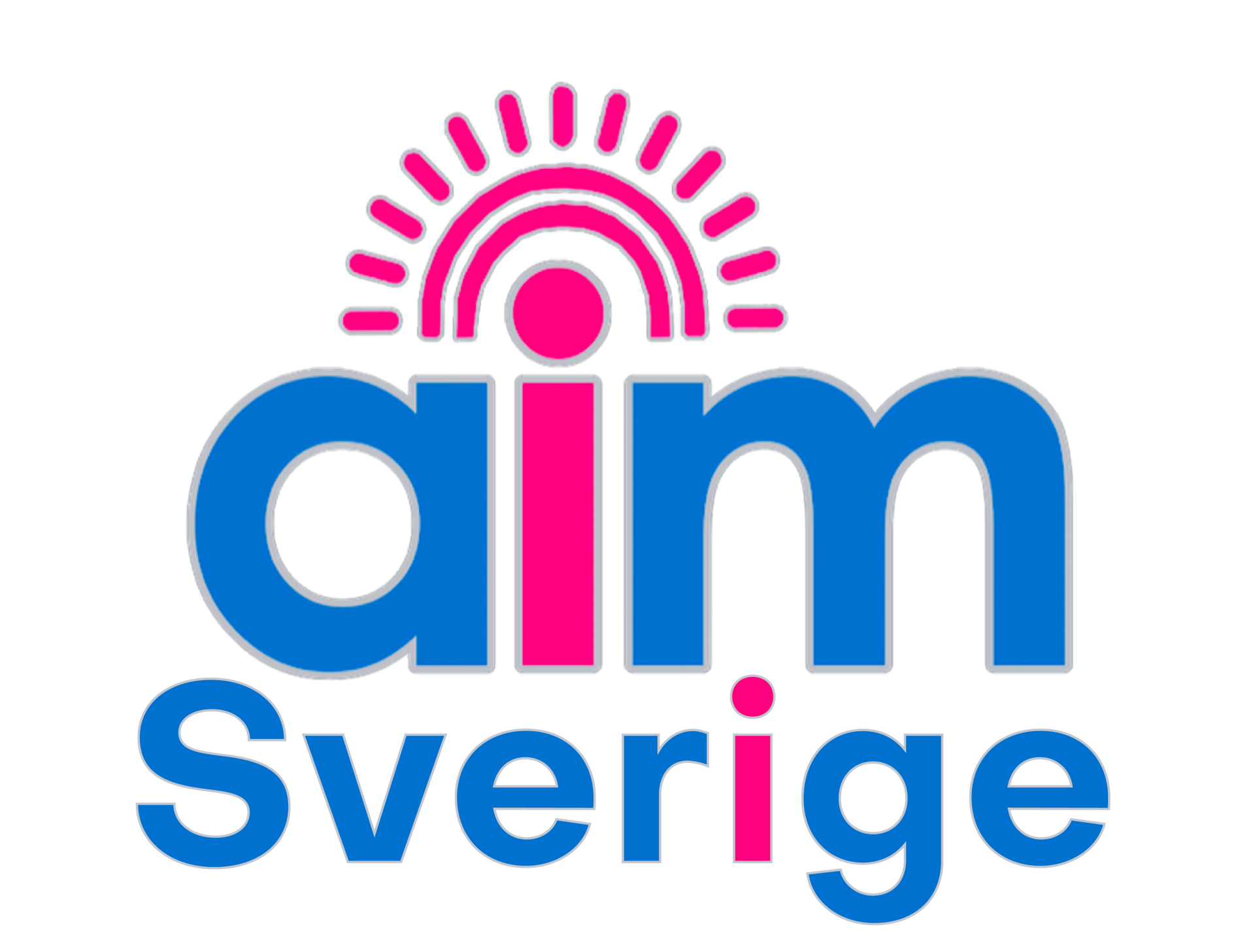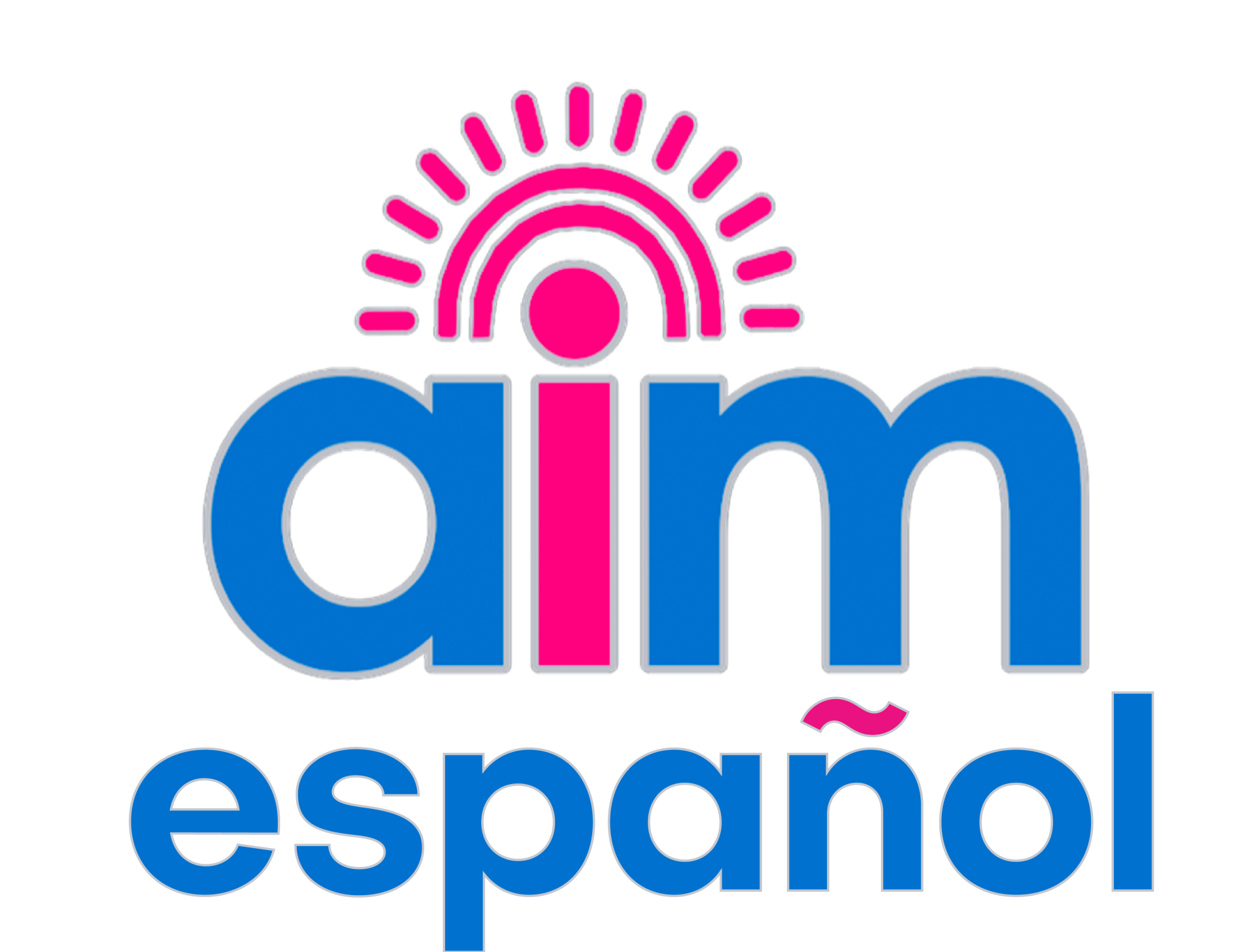Ten BIG Differences between Montessori and Traditional Education
What is the difference between Montessori and Traditional Education?
If you are new to Montessori education, often the first question you might ask is “what makes Montessori different?” Truly, the answer to that question is immense! So, in effort to make this bountiful banquet of information a little more digestible, I have organized some of the key concepts into these ten BIG differences:
The Prepared Environment
Montessori classrooms are prepared in advance based on observations of the students’ individual needs. They include student-centered lessons and activities. Traditional classrooms are based on teacher-centered lessons or activities.
students’ individual needs. They include student-centered lessons and activities. Traditional classrooms are based on teacher-centered lessons or activities.
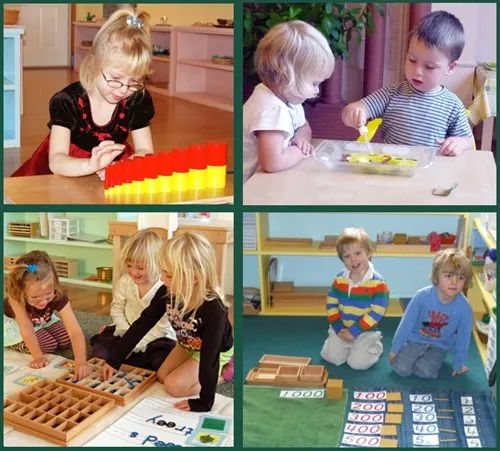
Active vs. Passive
Montessori lessons are hands-on and active. Students discover information for themselves. Traditional school lessons are often orated to students who listen passively, memorize, and take tests.
Give ‘Em Time
In the Montessori classroom, children work on lessons as long as need be, and interruptions are avoided whenever possible. Time limitations are mandated by arbitrary schedules in traditional classrooms.
The Teachers’ Role
Montessori teachers act as guides and consultants to students on a one-on-one basis. They assist each child along his or her own learning path.  Traditionally, the pace and order of each lesson is predetermined. The teacher must deliver the same lesson, at the same pace, in the same order, for all of the students.
Traditionally, the pace and order of each lesson is predetermined. The teacher must deliver the same lesson, at the same pace, in the same order, for all of the students.
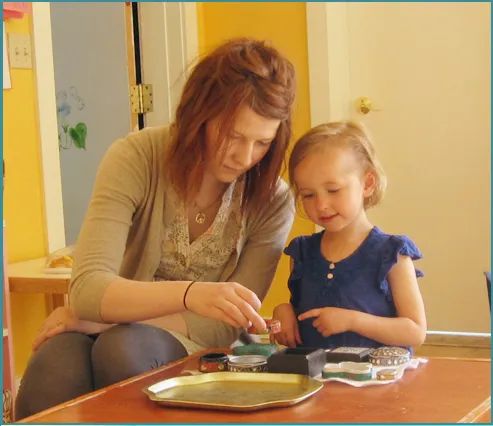
Age Groups and Grade-levels.
In Montessori schools, “grade-levels” are flexible and determined by the child’s developmental range, i.e., 0-3, 3-6, 6-9, 9-12, 12-15, and 15-18 years of age. In traditional schools, grade levels are not flexible and strictly defined by chronological age within a twelve-month period.
Adaptable Curricula
Montessori curricula expand in response to the students’ needs. Traditional curricula are predetermined without regard to student needs.
Pace Yourself
The individual child’s work pace is honored and encouraged in the Montessori classroom. Traditional classrooms expect all children to work at the same pace.
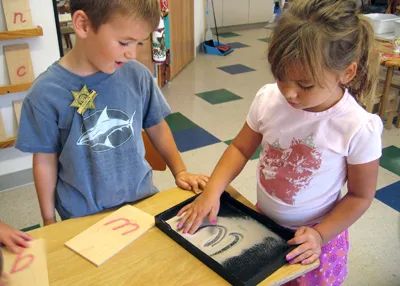
Self-Made Self-Esteem
Montessorians understand that the child’s self-esteem comes from an internal sense of pride in his or her own accomplishments. In traditional classrooms, self-esteem is thought to come from external judgement and validation.
For the Love of Learning
Montessori curricula are intended to appeal to the child’s innate hunger for knowledge. Children learn to love learning. Traditional curricula focus on standardized test performance and grades. Children learn because it is mandatory.
Change is Good
The Montessori Method was created by Maria Montessori and is based on a lifetime of study and observation with regard to the way children really learn. Traditional education is based on…well…tradition.
If you are interested in learning more about Montessori education, we welcome you to visit Age of Montessori’s information-rich website, watch our powerful webinars (free and professional development,) and join our discussions on Facebook. Our short online courses are excellent for teachers or parents seeking a more complete understanding of Montessori Education.
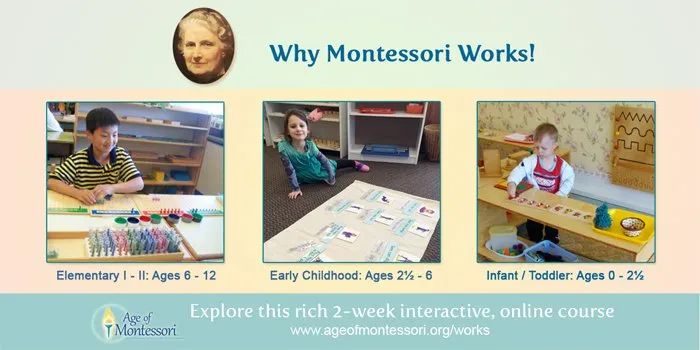
New! Why Montessori Works!
Infancy through Age 12
Join us for the NEW 2 week online + interactive course!
Discover why a Montessori education is so different from traditional. Learn the essential structure of classrooms for Elementary (Ages 6-12) + Early Childhood (Ages 2 1/2-6) + Infant-Toddler (Ages 0 - 2 1/2). -- Immerse yourself in this 2 week online + interactive course.
Find out more
-- Or --
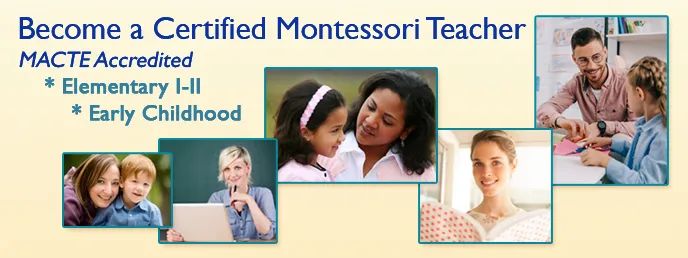
MACTE Accredited Montessori Teacher Certification Courses Starts Soon -- Become a Certified Elementary Teacher or a
Certified Early Childhood Teacher in just 14 months!
Why Age of Montessori?
Want to Become a Montessori Teacher?
Montessori Teacher Training Online & 15 Day Hands-on Training!
Call today to review all your options!
406-284-2160

8 months online teacher training,
2 weeks hands-on residency,
9 months student teaching.
Program Start Dates:
March and
September

